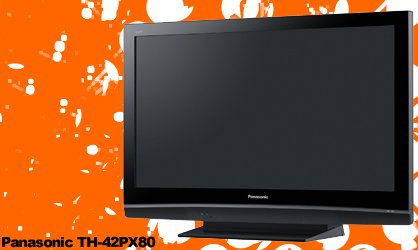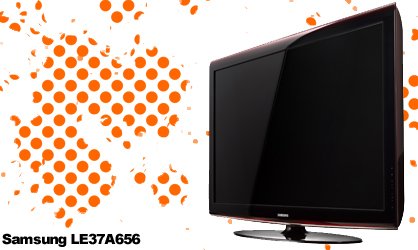Five of the best value TVs for gaming
Improve your gaming with a super sexy set
Although you might not realise it, your TV could really be selling your gaming short. Insufficient brightness, poor contrast, dodgy motion handling, washed-out colours, a lack of HD sharpness... all these are common horrors on the TVs people connect their game consoles to.
And then there's the biggest – but also least well known – problem of all: lag. It's a simple fact that the hefty amount of video processing some TVs use to try and improve their picture quality can cause a delay between a picture arriving from a console and actually appearing on the screen. And wherever you've got a picture delay, you've got an increased chance of having your face blown off by an opponent's shotgun before you've even seen him. Obviously this sort of handicapping situation is just plain unacceptable.
So we've put together a list of five affordable TVs which we feel can genuinely enhance your gaming experience.
Panasonic TH-42PX80
Price: £690
The first benefit to gamers of Panasonic's 42PX80 is gratifyingly obvious as soon as you look at it. It’s big. Around 42" big, to be precise. And there's no doubt that having a bigger screen really can give you a gaming edge, especially with racing games, where being able to spot that upcoming hairpin from as far away as possible is critical to nailing a perfect lap.

What's also great about the 42PX80 is that it gives you so much screen acreage for so little cash. We can't think of another TV out there right now delivering more bang for your buck.
The fact that the 42PX80 is a plasma rather than LCD TV is significant too, since it means the screen doesn't suffer with that slight smearing effect over fast movement that plagues so many LCD TVs. The use of plasma technology also means the TV can produce deeper, more natural black colours than most LCDs, which is seriously helpful when trying to spot horrors lurking in dark corners during something like Dead Space.
The only real downside to the 42PX80, in fact, is its native resolution of 1024x768. This means the set can't show HD games at their native resolution, and so while they still look HD, they don't look quite as detailed and pin-sharp as they can on the best full HD (1920x1080) resolution TVs.
Weekly digests, tales from the communities you love, and more
Samsung LE37A656
Price: £790
Initially, we guess, the LE37A656's numbers don't seem to stack up. After all, at 37" across it's 5" smaller than the Panasonic 42PX80, yet it's more expensive. But look deeper and the price actually becomes very reasonable.

For starters, the TV looks a million dollars in its unique 'touch of colour' bodywork, which finds a tinge of red suffused into the immaculately polished bezel. More important for gamers, though, is the set's provision of four HDMI sockets when most TVs today still only carry three or less. This means die-hard gamers can attach both a PS3 and an Xbox 360, and still have two HDMIs left for, say, a Sky HD receiver and a Blu-ray deck or DVD recorder.
Also beneficial to HD gaming is the TV's full HD resolution of 1920x1080, which means even the highest resolution HD games can be shown pixel for pixel without any messy resizing processing.
Then there's the set's 100Hz processing, which doubles the screen's refresh rate so that when you pan around a game environment, the picture looks less blurred and smeary. The 100Hz engine is very fast too, so you don't have to worry about it causing a significant delay in your pictures reaching the screen.
Finally, the set carries a really excellent 'Game' picture preset, which, if selected, adjusts various aspects of the picture, including the screen's response time, to optimise it for console gaming.
John has spent more than a quarter of a century writing about and reviewing pretty much every type of home entertainment product, from games consoles and soundbars to projectors, 4K Blu-ray players, streaming boxes, and, especially, TVs. As well as on GamesRadar+, his words of wisdom can be found as far afield as, T3, Tech Radar, Home Cinema Choice, Expert Reviews, and Forbes, while most of his spare time is spent wondering ruefully how much more sleep he might have had and how much higher his gamerscore might have been if only he hadn’t spent the past 15 years hopelessly and largely unsuccessfully addicted to Call Of Duty.



